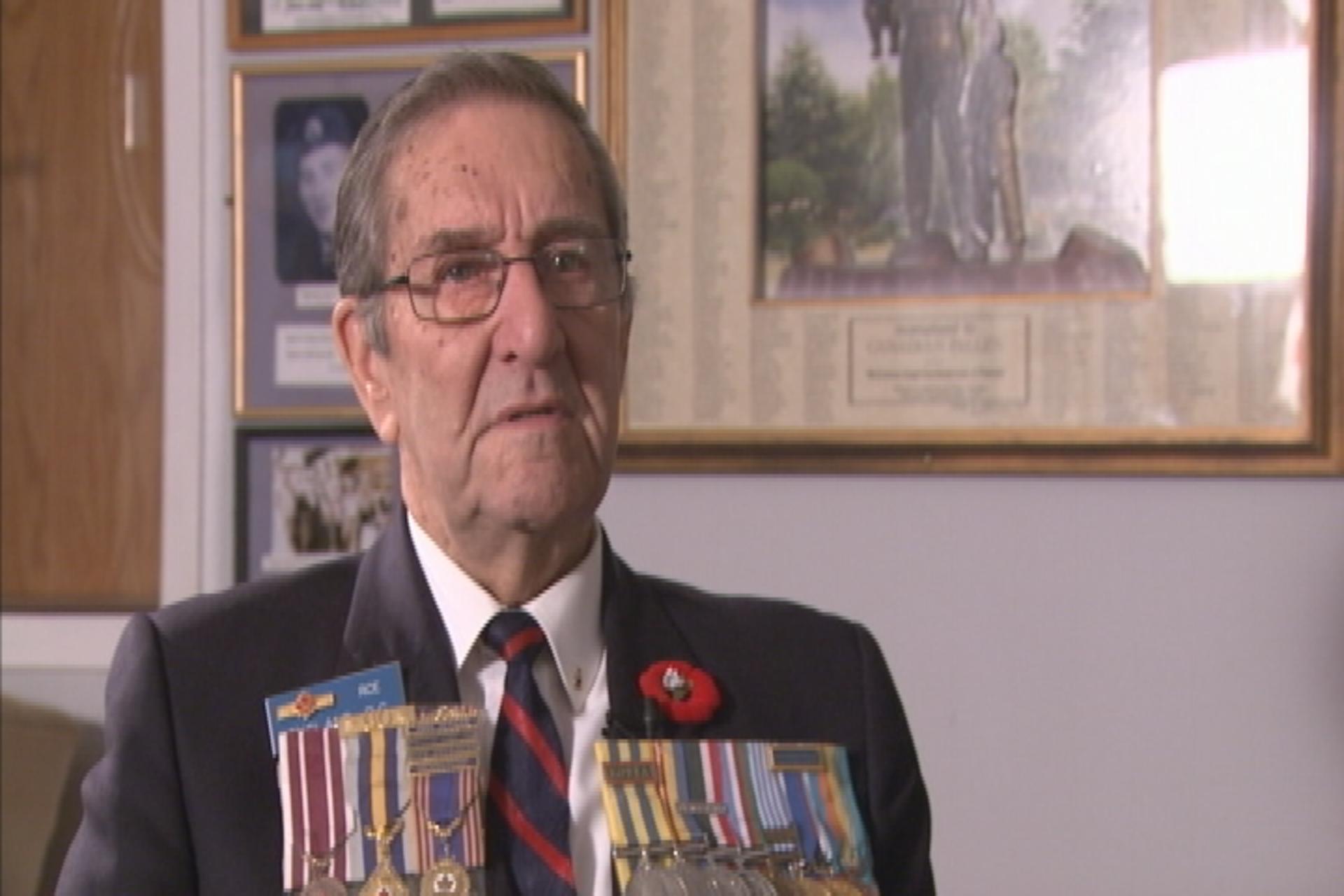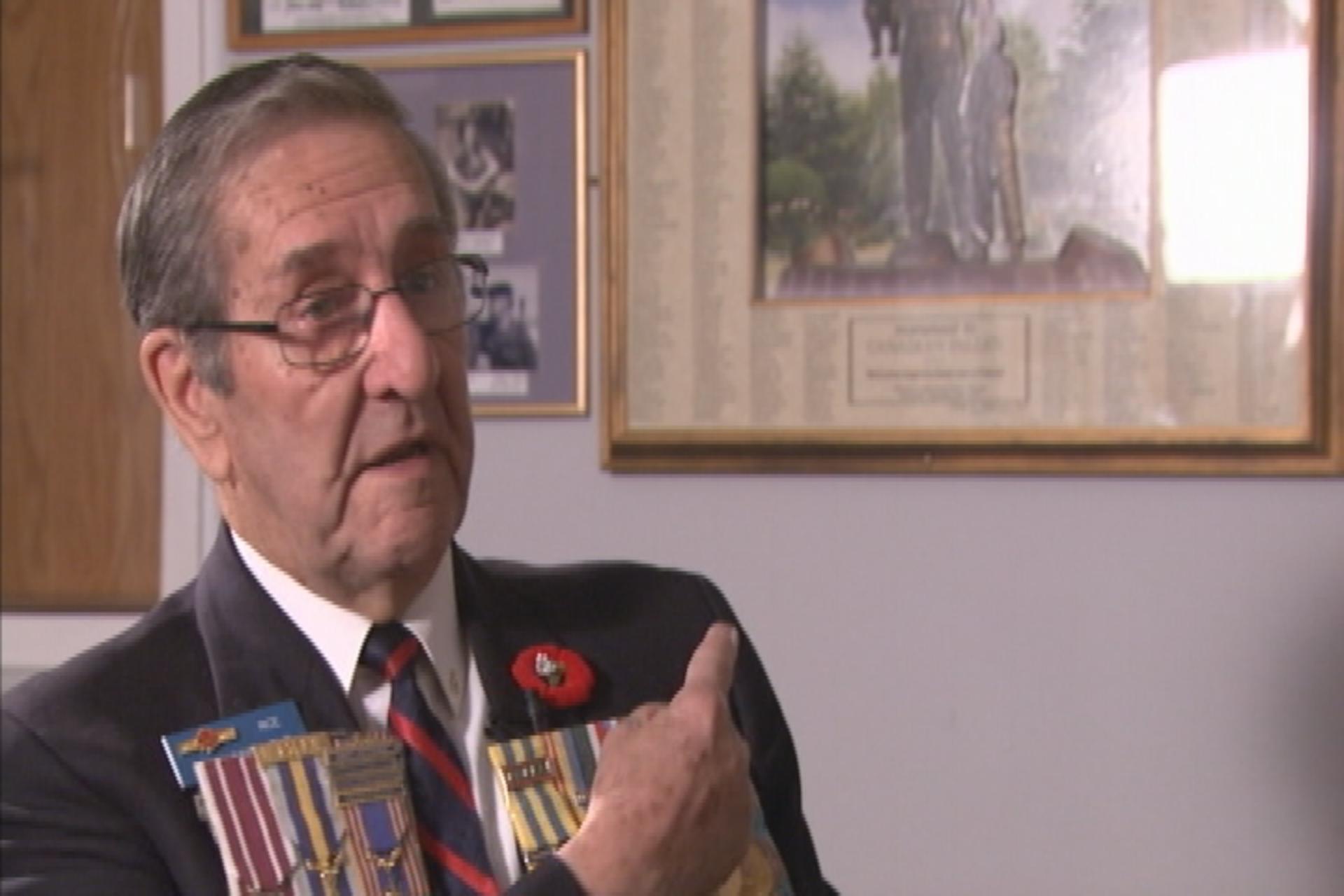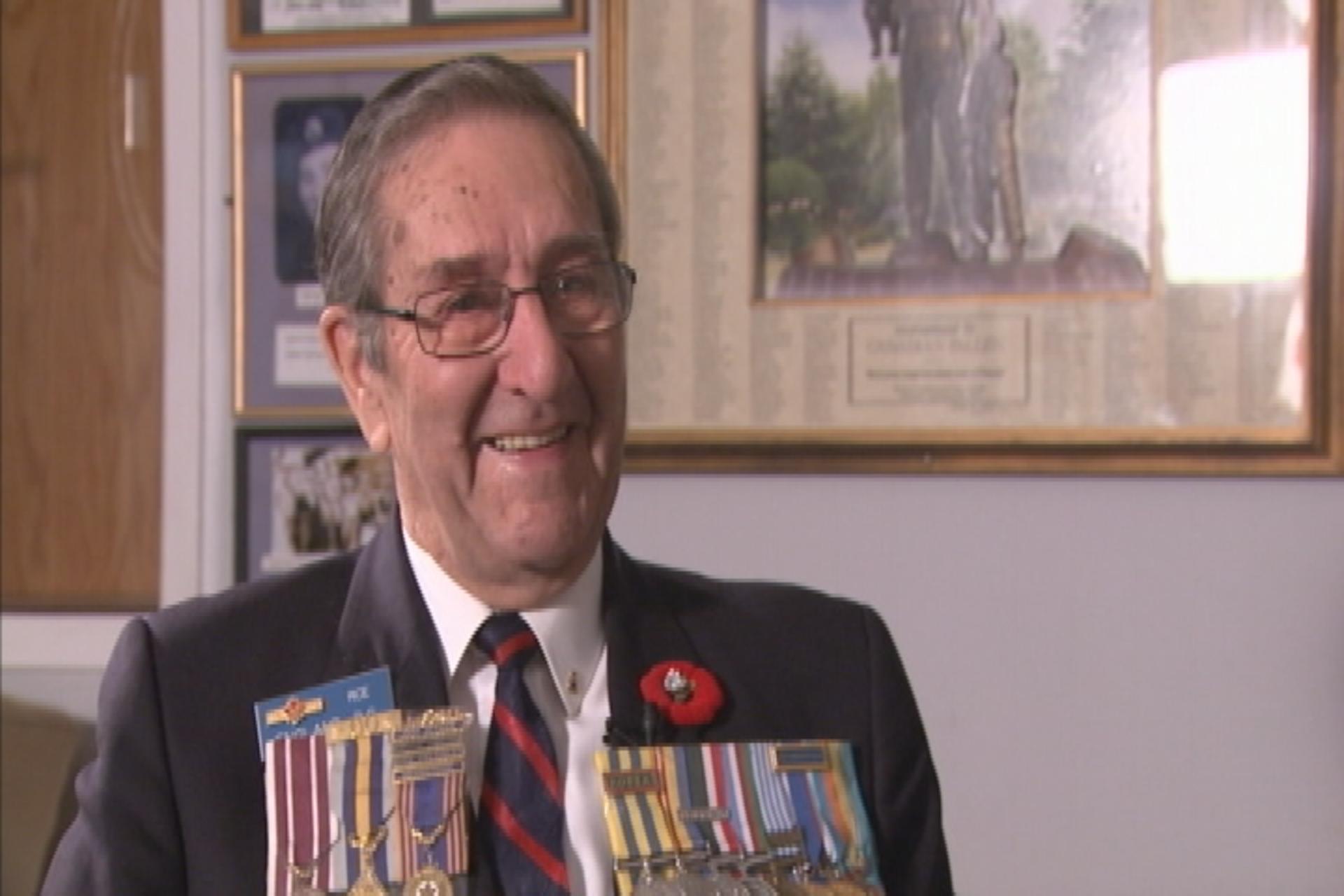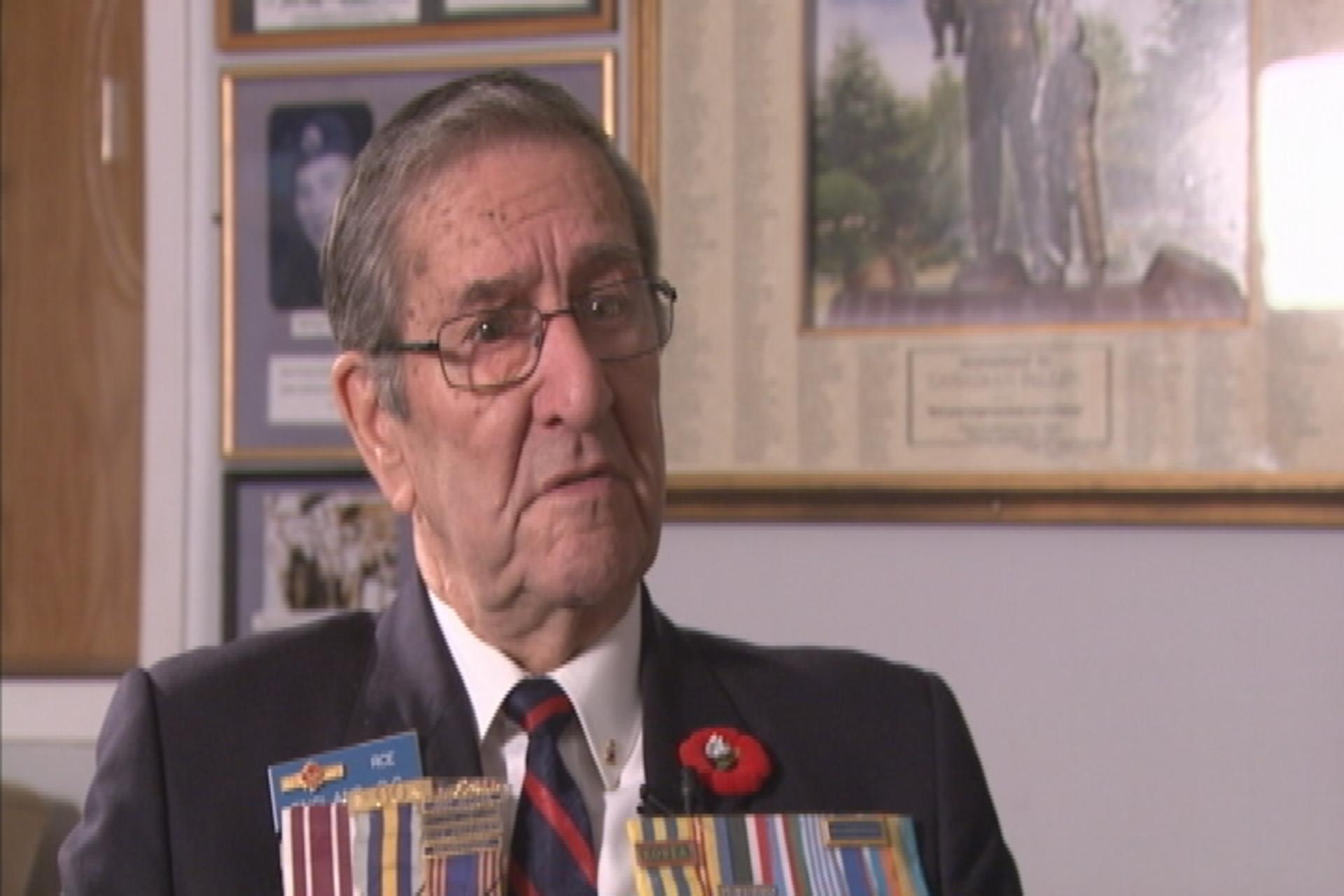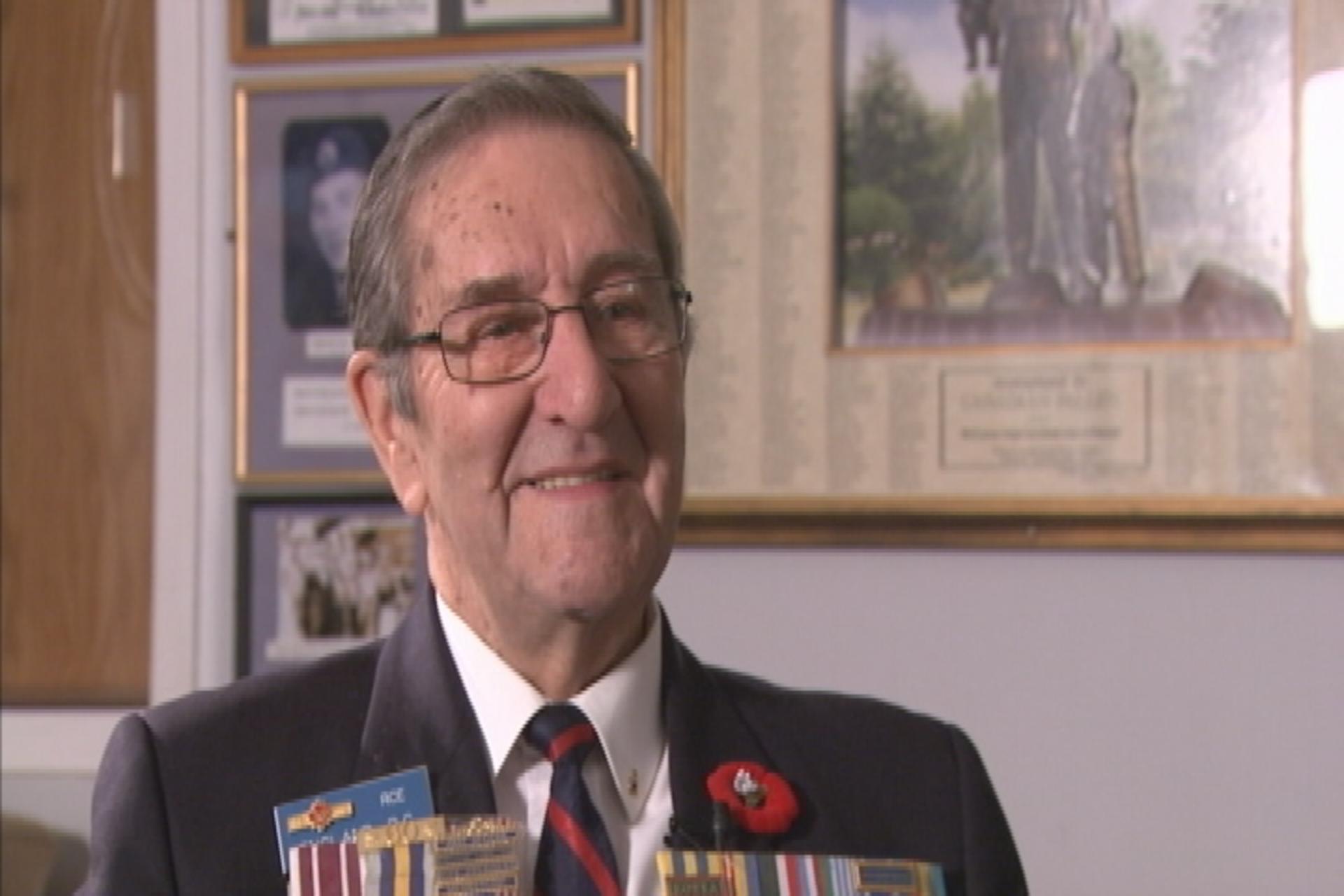Severe Culture Shock
Heroes Remember
Severe Culture Shock
Transcript
Interviewer: So you arrive in Korea,
the only thing I can say is that it must
have been quite a culture shock.
You better believe it, honest to my God,
it’s hard to say, you know,
the smell was something terrible.
It took about a day or so before
you could get kind of used to it, you know,
before your stomach was always turning with
the odour because their latrines and all
that was out in the open mostly, you know.
I don’t know what they fertilized their rice with.
It was a rumour that they used human waste,
you know, and I wouldn’t doubt it because
you could smell it, the stench.
Anyway, I joined the train trip.
There was a very small gauge train,
two to a seat and the seats were facing each other.
You were sitting in that and the train
was rocking back and forth.
We were on that for twenty four hours and
everybody had to use the latrine or the bathroom
which was a hole in the floor;
that was all and everybody had to use that.
I can remember that.
And we stopped every now and then at
little villages and this was in March.
We had our big grey coats on.
One village we stopped in, the people by the train,
Koreans, looking for handouts, you know.
This one little fellow though I think he had
I think it was a bag over him and his feet
were wrapped up in paper and then it was tied,
it’s all he had on.
So we sort of got some socks and whatever we had.
I had a pair of socks I threw out but some guys had
sweaters or something they could throw out to them.
I can remember that, the poor boy.
Interviewer: So a lot of poverty?
Oh, was it ever.
This was 1953, it was to the end of it,
we were after going back and forth on
that peninsula and there was nothing
there but makeshift homes and that.
They had makeshift tents, whatever they could
find and build up to make a shelter,
that’s all there was.
Some huts were still there but they were just
clay huts with straw roofing, you know.
Description
Mr. England describes what he saw, smelled and felt as he arrived in Pusan, a culture so very different to what he was used to!
Douglas England
Mr. Doug England was born February 9, 1931 in St. John’s, Newfoundland. He was the oldest son of five children and at the young age of ten, he lost his mother and was cared for by his grandparents. Later, in his teenage years, Mr. England joined the Reserves and at the age of 19 transferred to active force. He joined the Royal Canadian Engineers and volunteered for service in the Korean War. After the war, Mr. England returned home to St. John’s and married. To this day, Mr. England volunteers at the local legions with a strong focus on commemorating the Korean War.
Meta Data
- Medium:
- Video
- Owner:
- Veterans Affairs Canada
- Recorded:
- November 10, 2015
- Duration:
- 3:14
- Person Interviewed:
- Douglas England
- War, Conflict or Mission:
- Korean War
- Location/Theatre:
- Korea
- Battle/Campaign:
- Korea
- Branch:
- Army
- Units/Ship:
- Royal Canadian Engineer
- Rank:
- Non-Commissioned Officer (NCO)
Related Videos
- Date modified:




